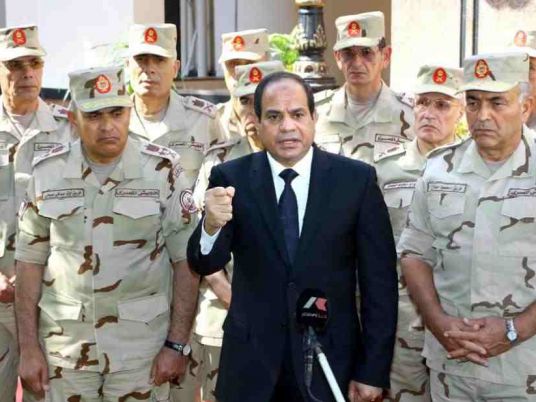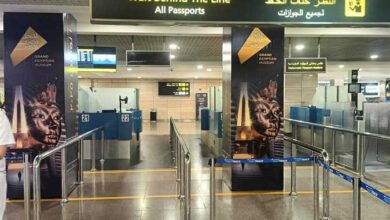
The government of President Abdel Fattah al-Sisi is still unable to achieve stability despite its anxiousness to lobby all resources available for suppression, according to the Arab Reform Initiative, an independent consortium of policy institutes.
The four years since the ouster of former president Hosni Mubarak have not recorded any success in establishing a revolution-based political system, Dina al-Khawaga, a Cairo University political science professor, said in an article published by the initiative.
Khawaga suggests that observers fail to mark the similarity between Sisi’s regime and that of his predecessor, the Muslim Brotherhood’s Mohamed Morsy, arguing that both relied on excessive force, exceptional legislation, empowerment of confidantes, disbelief in plurality and the political community.
Morsy and Sisi governments share the adoption of a conspiracy rhetoric, according to Khawaga. While Morsy’s rhetoric in his last six months in office was filled with suggestions of hostility by state bodies against his government, Sisi maintains the mantra of plots by the Muslim Brotherhood and their regional allies which seek to divide the country.
She added that both governments have also been similar in precipitously championing mega projects, frantically soliciting foreign finances and overplaying the effect of their major projects as was the case with Morsy’s multi-aspect “Renaissance Project” and Sisi’s “Long Live Egypt” fund.
Khawaga concluded that reliance on the security force has failed to achieve stability neither on the security nor the economic level, stressing that over coming the Hosni Mubarak legacy can be done solely when political parties cease to rely on violence and power deals as means for survival.



